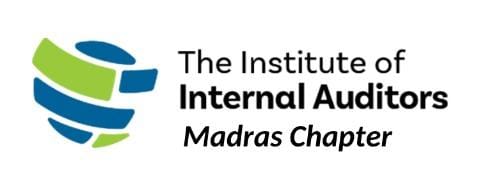
Gaslighting the Internal Auditors Should Never Succeed
BY RICHARD CHAMBERS
The term “gaslighting” has enjoyed a resurgence in popularity in recent years. Its origins date back to a British play later made into a film during the 1930s. Titled “Gas Light,” the plot revolved around a husband’s psychological and emotional manipulation of his spouse, leading her to question her sanity. The manipulation involves his deliberate alteration of a gas lamp’s brightness within their residence.
In its modern-day use, gaslighting is a manipulative tactic in which one person tries to control another by making them doubt their own perceptions, memory or even sanity. It usually involves denying or distorting reality, causing the victim to question their beliefs and feel confused or uncertain.
Sadly, gaslighting isn’t limited to personal relationships. It also is used in business, including against internal auditors and particularly when their conclusions are seen as threatening.
By now you are probably thinking, “Richard, you’re really reaching here.” I wish that were true. But there are some pretty notorious examples of internal auditors being gaslighted and forced to back off their audit conclusions – with ultimately disastrous consequences.
One notorious case several years ago involved internal auditors for a global retail company. They had identified what they asserted were violations of the U.S. Foreign Corrupt Practices Act. The company’s legal executives quickly countered that the transactions in question were merely legal facilitation payments, and that internal audit would look foolish if it took the matter forward. The CAE succumbed to the pressure and the issue went unreported. That is, until the company was eventually investigated and paid hundreds of millions of dollars in fines.
Gaslighting happens to some extent far too often. I recall the time when one of my first audits as a CAE revealed a potential violation of government procurement law. As with the retail example, the organization’s general counsel quickly took me aside and said we were wrong – and that he would argue the contracts were legal. He pointedly told me that it would hurt my credibility to pursue the matter. Fortunately, I realized that he was protecting only himself and his team of attorneys. Afterall, they had signed off on the contracts. So, I took the matter forward.
While both of those examples involved gaslighting by an organization’s legal team, the problem can be much broader. I’ve seen a CFO, head of HR, and even a CEO try it. Heck, I even heard of an audit committee chairman trying to convince a CAE that potential fraudulent financial reporting should not be pursued.
The reason for gaslighting is often obvious. By asserting that internal auditors’ conclusions are wrong, and any pursuit of the matter would undermine their credibility (and even damage their careers), the perpetrators are trying to sow doubt in the internal auditors’ minds and undermine their self-confidence. Such efforts should never succeed.
Let me be clear: The give-and-take at the end of an internal audit can involve disagreements and differing points of view. In the vast majority of instances, there is no sinister motive, and the final audit results become a product of a healthy negotiation. Gaslighting should be suspected only when a client (or another executive) is trying to make the internal auditors believe their audit results or points of view are unreliable, and the motive is clearly nefarious.
If you’re confident your audit work is thorough and your conclusions are sound, but you suspect someone is attempting to gaslight you, here are a few tips for navigating the challenge:
- Trust Your Instincts. If something doesn’t feel right, follow your gut and be confident in your ability. Gaslighting can make you doubt yourself and your work, so remind yourself of the due professional care and quality audit processes you leveraged throughout the audit.
- Consider having another auditor reperform the audit work. If there is a serious challenge to the audit’s conclusions, or to the competence and professionalism of the audit team, the CAE should consider bringing in a fresh set of eyes. If the results/conclusions are the same, that should encourage you to take the matter forward.
- Engage your own expertise. If potential gaslighting is coming from an authoritative voice in the organization (such as legal counsel), try to secure your own legal advice, if you have the resources and authority to do so.
- Take your audit conclusions back for a second round of discussions. Once you have reaffirmed the quality and veracity of your conclusions, reengage those who have been gaslighting you. They are seeking your surrender, so stand firm and show your determination to not back down.
- Escalate the differing points of view. At some point, we have to move on. If those who contend you are wrong are not persuaded by anything you have said or showed them, it’s time to take your conclusions and their disagreements to the next level – the CEO or audit committee.
- Accept the final outcome. I am troubled by internal auditors who bear scars from a dispute that was escalated and didn’t go their way. We must respect the corporate governance process. If we “fight the good fight” but lose, we need to accept the outcome – but also not hesitate to take on the next challenge.
The purpose of this blog post is not to foster an us-versus-them mentality. However, we must recognize that not everyone in our organization will always be driven by noble intentions. If one of your audits finds a serious risk management or control deficiency, and the response is resist and undermine you, do not let them succeed.
What are your thoughts? Please share with me on LinkedIn or Twitter, or drop me an email at blogs@richardchambers.com.
